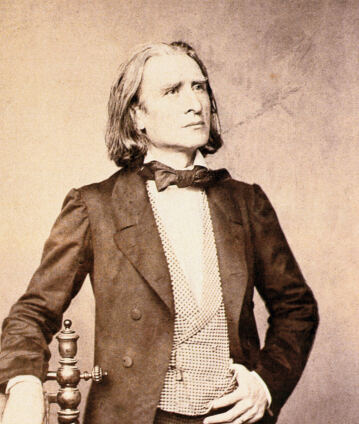Franz Liszt
Composer
Rarely has a musical life appeared so contradictory to biographers as that of Franz Liszt. Some hail the composer as a revolutionary in the art of music and the pianist as one of the greatest Beethoven interpreters of his time. Others see him primarily as an arranger of popular opera paraphrases and an artistic titan of the keyboard whose skills as a composer fell far short of his abilities as a pianist. One thing is certain: to this day, his compositions continue to enjoy popularity in concert halls.
Franz Liszt was born into a German-speaking family in 1811 in Raiding, then Hungary (now Austria), and received his first piano lessons from his father. In Vienna he studied under Carl Czerny and Antonio Salieri, and in Paris he immediately became the darling of the salons. When, after successful concert tours through England, Liszt’s father died unexpectedly in August 1827, the then 16-year-old experienced a serious crisis. Only slowly did he find his way back into performing. An encounter with the violin virtuoso Niccolò Paganini proved to be a decisive experience. Liszt then emulated Paganini’s technical perfection on his instrument and became an internationally acclaimed superstar. In the process, he not only revolutionised the piano and pedal technique of his time, but also created the concert format of today’s piano recital. Previously, mixed formations were common in concerts. Liszt began an affair with the married Marie d’Agoult, which caused a scandal. In 1848, he took leave of the eventful life of the virtuoso. He spent 13 years as court kapellmeister in Weimar, during which time he wrote twelve symphonic poems. He had a close friendship with Richard Wagner, which, however, was temporarily overshadowed by his relationship with Liszt’s daughter – and Wagner’s later wife – Cosima. In 1861, Liszt went to Rome, where, four years later, he took holy orders and from then on called himself an abbé – a decisive turn towards religion that is also reflected in his later works. In the following years Liszt lived alternately in Rome, Weimar and Budapest. In 1886, he travelled to Bayreuth, where Cosima was directing the festival. Liszt died there as a result of pneumonia. He was buried in the Bayreuth city cemetery.